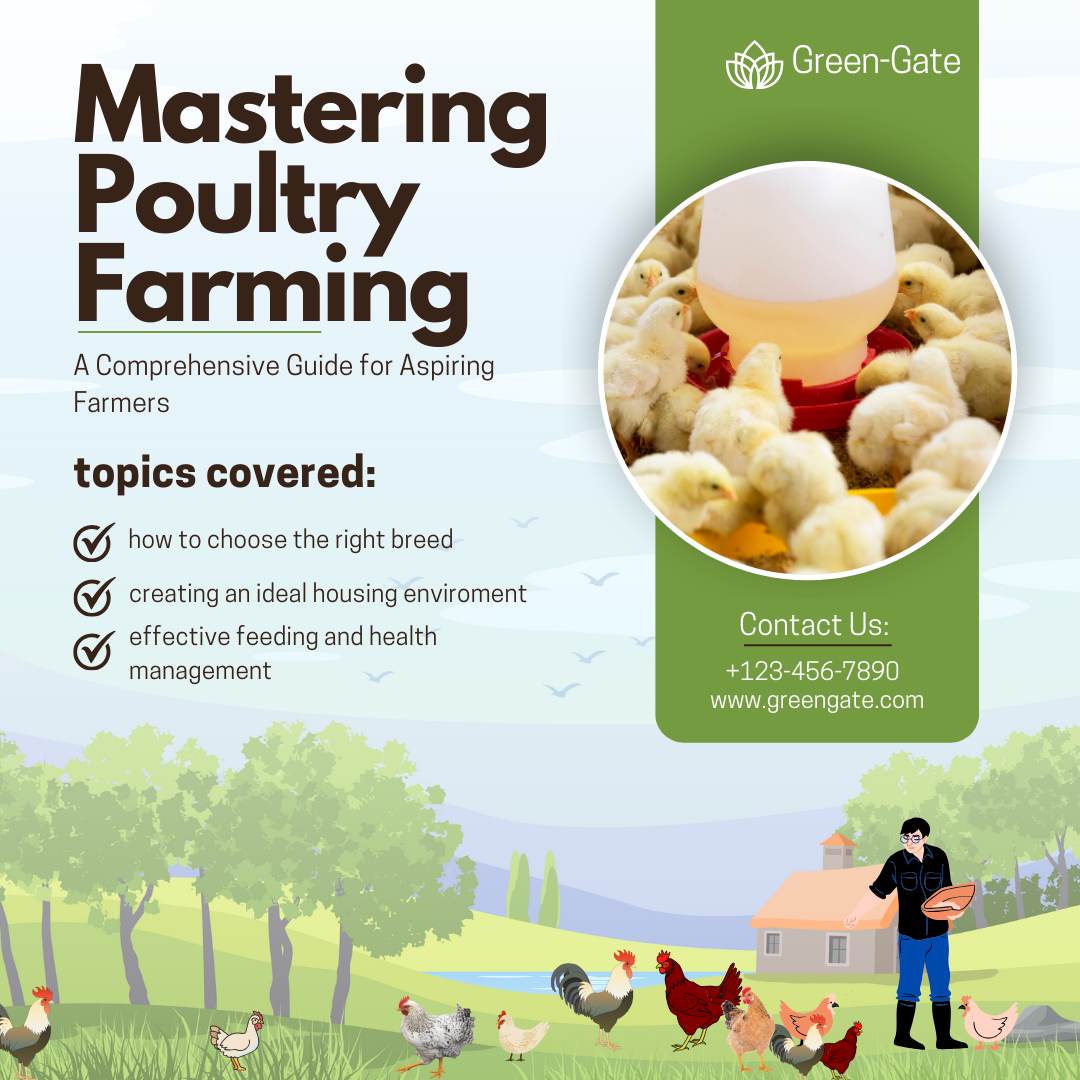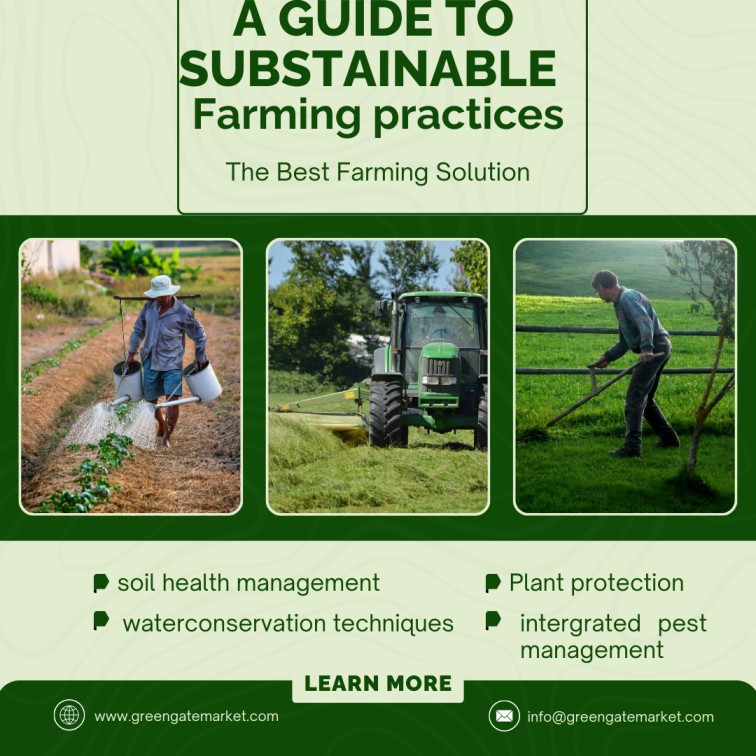Title: Mastering Poultry Farming: A Comprehensive Guide for Aspiring Farmers
Poultry farming is a rewarding venture for those passionate about agriculture and animal husbandry. With the right knowledge and strategies, you can build a thriving poultry business. In this post, we’ll cover three essential aspects of poultry farming: choosing the right breed, creating an ideal housing environment, and effective feeding and health management.
1. Choosing the Right Breed for Your Farm
The success of your poultry farm starts with selecting the right breed. Different breeds serve different purposes, and your choice should align with your farming goals.
- Egg-Laying Breeds: Consider breeds like Leghorns, Rhode Island Reds, and Sussex if you’re focusing on egg production. These breeds are efficient and produce consistently.
- Meat-Producing Breeds: Broilers such as Cornish Cross and Cobb 500 are ideal for farmers interested in raising poultry for meat. These birds grow fast and yield high-quality meat.
- Dual-Purpose Breeds: If you want a mix of both, dual-purpose breeds like Orpingtons and Australorps are excellent choices.
- Local vs. Exotic Breeds: Consider your local climate and resources. Local breeds are often more resilient, while exotic breeds may require additional care but offer higher productivity.
2. Creating an Ideal Housing Environment
Proper housing is essential for the health and productivity of your flock. A well-designed poultry house should ensure:
- Ventilation and Lighting: Good airflow prevents respiratory problems, while adequate lighting supports egg production.
- Space Requirements: Overcrowding leads to stress and diseases. Ensure each bird has enough space to move comfortably. For example, layers need about 2 square feet per bird, while broilers require about 1 square foot.
- Cleanliness and Hygiene: Regular cleaning prevents the spread of diseases. Use bedding materials like wood shavings and replace them frequently.
- Security: Protect your birds from predators by reinforcing the coop and using secure locks.
3. Effective Feeding and Health Management
Feeding and health care play a crucial role in maximizing your poultry's productivity.
- Balanced Diet: Feed your birds a diet rich in nutrients. Layers need more calcium for strong eggshells, while broilers require a protein-rich diet for rapid growth. Supplement feeds with grains and greens for variety.
- Clean Water: Provide a constant supply of clean water to prevent dehydration and support digestion.
- Vaccination and Disease Control: Prevent common diseases like Newcastle, Marek’s, and avian influenza through timely vaccination and maintaining biosecurity measures.
- Observation: Regularly monitor your flock for signs of illness or stress, such as lethargy, reduced appetite, or abnormal droppings. Address issues promptly to prevent outbreaks.
Conclusion:
Poultry farming can be a profitable and fulfilling endeavor when approached with the right knowledge and practices. By choosing suitable breeds, creating optimal housing conditions, and ensuring proper feeding and health management, you can set your farm up for success. Start small, learn as you go, and watch your poultry farming venture grow into a sustainable business.



